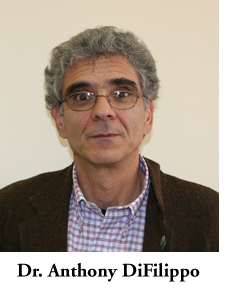- Posted in All University
- Category: Campus News
 LINCOLN UNIVERSITY, PA ~ Lincoln University professor Dr. Anthony DiFilippo has written articles for two international publications.
LINCOLN UNIVERSITY, PA ~ Lincoln University professor Dr. Anthony DiFilippo has written articles for two international publications.
Dr. DiFilippo’s first article appears in the September issue ofMagazine 9. Titled “Article 9 Makes Japan a ‘Beautiful Country,’” the article focuses on the importance of retaining Article 9, Japan’s war-renouncing constitutional clause that only permits the defense of the homeland from attack by another country.
Dr. DiFilippo said the article stresses that the time is now right for Japanese peace groups to press hard to preserve Article 9.
According to Dr. DiFilippo, Japanese nationalists have been trying for more than a decade to make Japan a "normal country," that is, one with an advanced and capable military that actively contributes to international security operations, specifically with the United States.
In more recent years, however, Japanese nationalists have been pushing especially hard to revise Article 9, despite the fact that a sizable proportion of Japan's population still wants to retain it so that the country can participate in international security without constitutional restriction, Dr. DiFilippo added.
Shinzo Abe, a well-known nationalist who just recently resigned as prime minister of Japan, claimed during his tenure in office that he wanted to make Japan a "beautiful country" — thus, part of the title of the article. Encouraged by Japanese nationalists, Abe made the timely revision of Article 9 a major objective of his administration, something that others of his political ilk still want to see happen in Japan.
Magazine 9 is a an online Japanese publication largely devoted to preserving Article 9, Japan's war-renouncing (pacifist) constitutional clause, which in recent years has been seriously threatened by revisionist political forces. Dr. DiFilippo’s essay "Article 9 Makes Japan a 'Beautiful Country'" appears in English on the website of the publication, which has also posted a translated Japanese version of it.
Dr. DiFilippo’s second article, "Targeting Chongryun?” was published in October by the Nautilus Institute’s Policy Forum Online, at the Center for the Pacific Rim, University of San Francisco. The article exposes some of the current problems facing certain Koreans living in Japan.
Chongryun (the Korean name for the General Association of Korean Residents in Japan) is an organization that openly supports the government of North Korea. While all Koreans, including those that support the government of South Korea, continue to experience discrimination in Japan, Chongryun Koreans are most susceptible to this type of treatment, Dr. DiFilippo said.
According to Dr. DiFilippo, “This article questions the extent to which the Japanese central government has been bearing down politically on Chongryun because of the very poor bilateral relationship between Japan and North Korea.”
The Nautilus Institute's Policy Forum Online, which published "Targeting Chongryun?" is focused “on timely publication of expert analysis and op-ed style pieces on the foremost of security-related issues to Northeast Asia. Its mission is to facilitate a multilateral flow of information among an international network of policy-makers, analysts, scholars, media, and readers.”
Founded in 1854, Lincoln University is a premier, historically Black University that combines the best elements of a liberal arts and sciences-based undergraduate core curriculum and selected graduate programs to meet the needs of those living in a highly technological and global society. The University is nationally recognized as a major producer of African Americans with undergraduate degrees in the physical sciences (biology, chemistry and physics); computer and informational sciences; biological and life sciences. Lincoln has an enrollment of 2,423 undergraduate and graduate students.